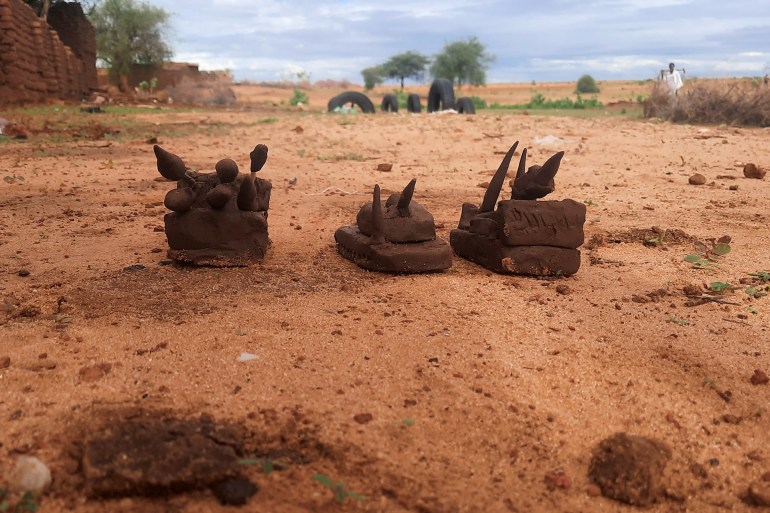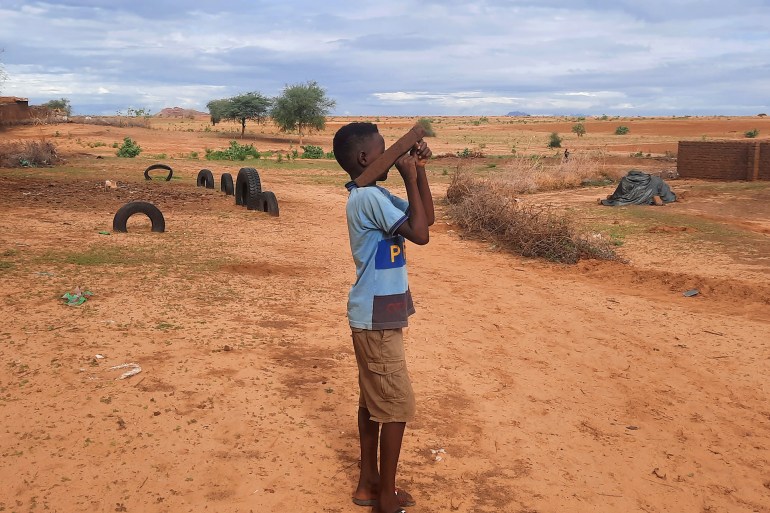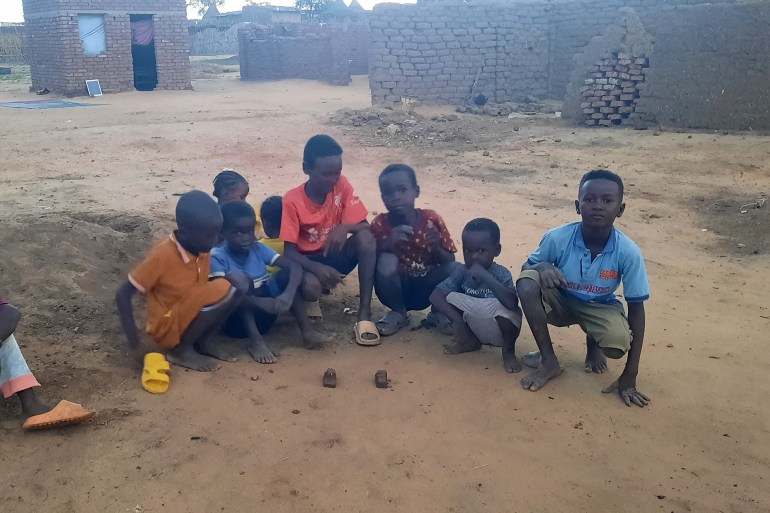Playing with clay weapons.. This is how Sudanese children see their future | Politics
Al Fasher- In light of the ongoing conflict tearing apart Sudan and the Darfur region in particular, a disturbing and painful phenomenon has emerged, with some children in displacement villages and shelters making models of weapons and military vehicles out of clay and wood, in an attempt to imitate the real thing.
These supposed weapons raise parents' concerns about the safety of children, as some of them look real from a distance, and some may think they are real weapons without discovering their true nature until they get closer to them.
This phenomenon reflects the psychological and social suffering that these children are experiencing in light of the ongoing conflict and displacement. Instead of being in schools, they are trying to express their painful reality by making these supposed models.

A worrying phenomenon
According to sociology experts, this dangerous practice reflects the extent to which the ongoing conflict in Sudan has affected the psychology and behavior of children. Instead of being in a safe environment and receiving the necessary education and care, they are forced to adapt to a harsh and painful reality, which prompts them to express it in unsafe and dangerous ways.
Speaking to Al Jazeera Net, citizen Saleh Mahmoud from the Tawila area, located 60 kilometres west of the city of El Fasher, the capital of North Darfur, said that the phenomenon of children making clay weapons has spread widely in his area, and is a direct reflection of the state of fear and isolation experienced by the region’s residents.
He added that their children feel weak and helpless in the face of the ongoing violence, so they resort to this method because they believe it is a way to defend themselves and their property, and that this bitter reality – as it is – has greatly affected their behavior and thinking, which may negatively affect their future, as they have become influenced by the culture of war and imitate it in its various forms.
For her part, housewife Awatif Hamid said, “Watching our children making these weapons is sad and worrying. They need security, protection and care, not to be forced to make tools for fighting and call out the names of fighting soldiers.” She stressed to Al Jazeera Net that this “painful reality” requires urgent intervention by the relevant authorities to find radical solutions to the conflict and provide the necessary security and care for the children of Darfur and Sudan as a whole.
While Hawa Adam, a displaced person from the Shagra area west of Al-Fasher, said that children in their area chant the fighters’ songs every morning while carrying models of weapons made of clay, while some of them wear the “kadamul” mask (a Sudanese turban that also covers the face), and others carry pistols made of clay and wood.
She added to Al Jazeera Net that families are disturbed by these behaviors, as the children are still young, but they carry these weapons constantly throughout the day.

New roles
According to sociologist Mohamed Suleiman Atim, the war has had a major impact on the lives of children in Sudan, particularly in Darfur. He explained that the growing culture of war among them could lead to an increased inclination towards military life, and that children in Darfur are the most affected by the ongoing war in the region.
He told Al Jazeera Net that closing schools would exacerbate the illiteracy problem in the region if the war continued for a long time, which could cause another “rebellion” in the region as a result of the ignorance and deprivation that children suffer from.
The researcher added that they face death daily and may lose their families or parts of their bodies, and they are deprived of going to school and dreaming of a better future. He stressed the need to take immediate measures to protect them from the devastating effects of war, and to rehabilitate them psychologically and socially.
In her statement to Al Jazeera Net, the psychology specialist confirms: Ibrahim's dreams Children playing with clay weapons is a way to express their feelings and try out new roles for themselves. They should be directed towards other creative activities that help them vent their feelings in a positive way, such as drawing, sculpting and music.
She pointed out the community's concern about this issue with the deterioration of civil life in the region. She said that children feel fear, anxiety and depression, and may suffer from psychological disorders, such as nightmares and disturbed sleep, and it is important to provide them with appropriate psychological treatment to help them recover from these negative effects.
The psychologist pointed out that psychotherapy in these cases includes the use of methods such as art therapy, music and stories that help them express their feelings and relieve psychological pressures, and involve them in social and recreational activities to help them rebuild their normal lives.
She stressed the need to provide psychological and social support to families and communities affected by the war, to help children recover better, integrate into society and schools, and adapt to civilian life again.

Destroying the future
In turn, the activist from the city of El Fasher describes: Saturn Abbas, This is “extremely dangerous,” she said, explaining that the spread of this culture reflects the extent to which the culture of war, instability, and the deteriorating security situation in the region has become entrenched, with children growing up in an environment filled with violence and viewing weapons as a means of play and entertainment rather than a tool for combat.
She told Al Jazeera Net that this situation has serious repercussions on the children’s future, as they may grow up in a culture of violence, which may lead to an increase in crime rates in the future.
She stressed the need to support local initiatives that aim to rehabilitate children and keep them away from the culture of violence. She spoke about many non-governmental organizations working in this field that provide training and entertainment programs for children to develop their skills and abilities to deal with this problem, “but they lack sufficient support.”
She stressed that the radical solution to this problem lies in stopping the war, and without it the culture of violence will continue, and children will not be able to build a better future.
The most severe impact
After a visit to Port Sudan in late June, UNICEF Executive Director Catherine Russell warned that children across Sudan were bearing the brunt of the conflict tearing the country apart.
She said that more than half of Sudan's 24 million children – about 14 million children – are in dire need of humanitarian assistance, and almost all of the country's children are currently out of school.
Meanwhile, media sources reported that more than 400 children in the city of El Fasher alone were killed or injured during the past months of May and June, all while the specter of hunger continues to threaten the country’s children.
